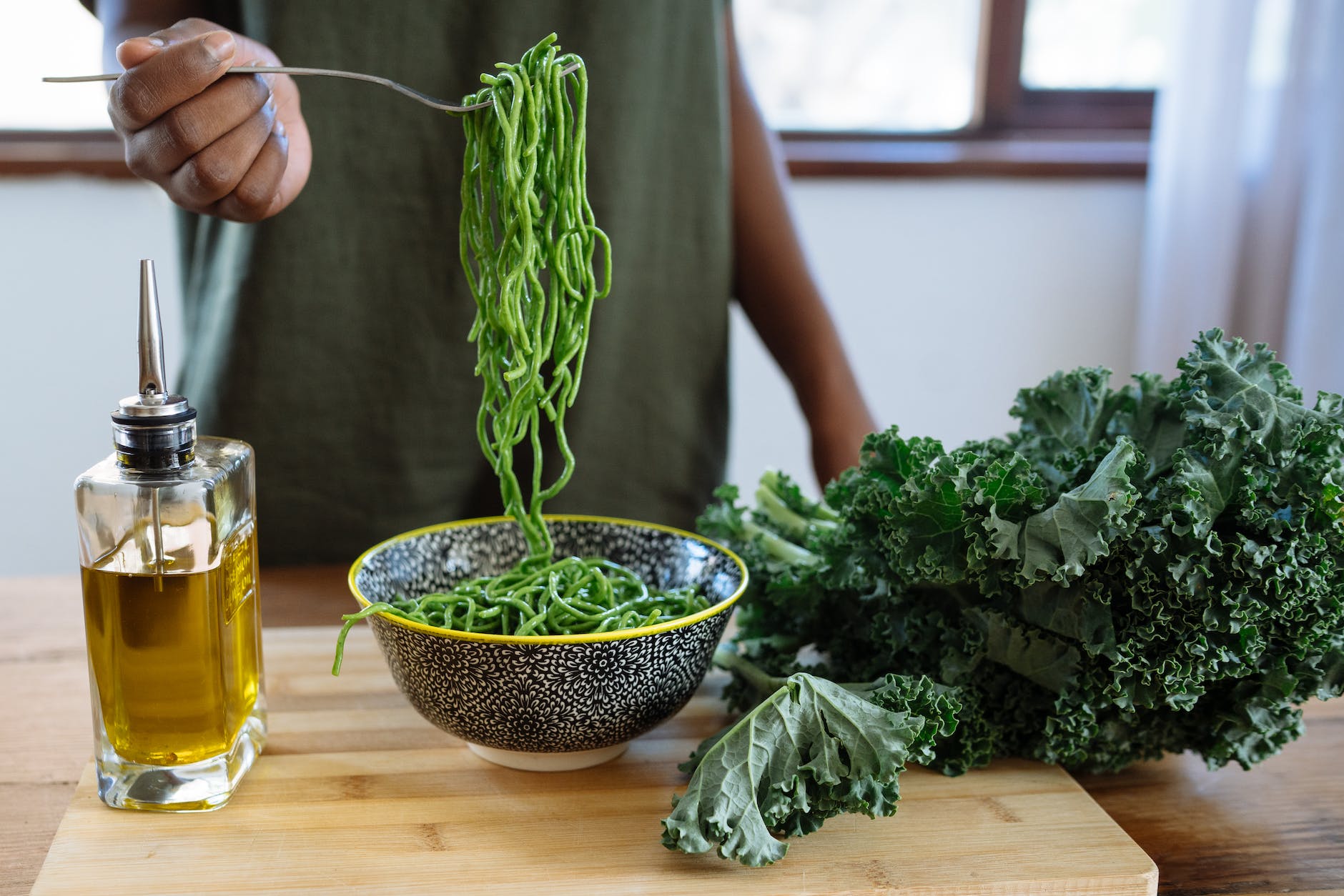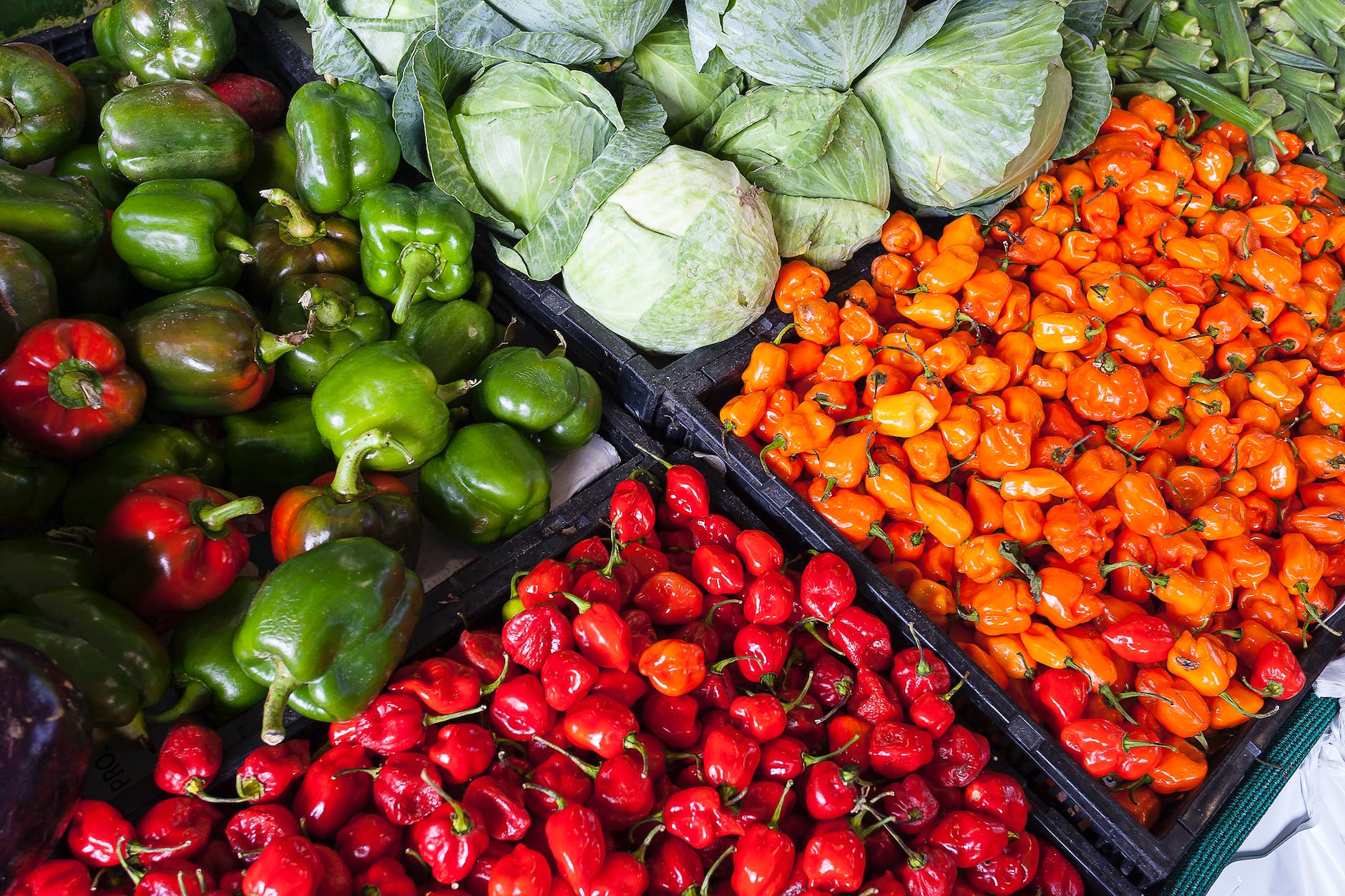
Kale, often dubbed as the “queen of greens,” is a leafy vegetable that has taken the health world by storm. With its rich nutritional profile and myriad of health benefits, it’s no wonder that this green powerhouse has become a staple in many diets. In this guide, we’ll delve deep into the world of kale, exploring its nutritional facts, health benefits, and much more.
1. Detailed Nutrition Facts of Kale:
Kale is a nutritional dynamo. Packed to the brim with essential vitamins, minerals, and other beneficial compounds, it’s one of the most nutrient-dense foods on the planet. Here’s a breakdown of what you can find in 100g of this leafy green:
- Calories: A mere 49 calories, making it an excellent choice for those watching their weight.
- Protein: Approximately 4.3 grams, which is impressive for a vegetable.
- Fiber: Around 2 grams, aiding in digestion and promoting a feeling of fullness.
Vitamins and Minerals:
- Vitamin C: A whopping 120% of the daily recommended intake. This vitamin is crucial for skin health, immune function, and collagen formation.
- Vitamin K: Essential for blood clotting and bone health, kale provides a staggering 684% of the daily recommended intake.
- Calcium: With 150 mg, kale is a good plant-based source of this bone-strengthening mineral.
- Magnesium: Important for muscle function and energy production, kale offers around 8% of the daily recommended intake.
2. The Health Benefits of Consuming Kale:
Kale isn’t just about numbers and percentages. The real magic lies in how these nutrients can positively impact your health.
For Skin:
- Glowing Complexion: The high Vitamin C content in kale promotes collagen production, leading to firmer, more youthful skin.
- Protection from Sun Damage: Antioxidants in kale can help combat free radicals, which are often responsible for premature aging and sun damage.
For Hair:
- Strength and Shine: The minerals in kale, especially iron and magnesium, can promote stronger hair and prevent breakage.
- Scalp Health: Kale’s Vitamin A content aids in sebum production, ensuring a moisturized scalp and preventing dandruff.
Weight Loss:
- Low in Calories, High in Nutrients: This makes kale a perfect addition to any weight loss diet.
- High Fiber Content: This promotes satiety, reducing the chances of overeating.
Digestive Health:
- Promotes Regularity: The fiber in kale aids in digestion and helps prevent constipation.
- Gut Health: Kale contains glucosinolates which can act as prebiotics, feeding the beneficial bacteria in the gut.
Bone Health:
- Calcium and Vitamin K: These two nutrients, abundant in kale, are vital for bone health and preventing osteoporosis.
3. Kale in Different Forms:
Kale’s versatility is one of its strongest suits. Whether you like it raw, cooked, or even in chip form, there’s a way to enjoy kale that suits everyone.
Raw vs. Cooked:
- Raw Kale: Best for salads and smoothies. It retains all its nutrients but can be a bit tough for some.
- Cooked Kale: Gentle cooking can make kale more digestible and even enhance the absorption of certain nutrients.
Kale Chips:
- Nutritional Value: While they’re a healthier alternative to regular chips, the nutritional value can vary based on the preparation method and added ingredients.
- Benefits: A crunchy way to get your greens in, especially for those who might not be big fans of leafy vegetables.
4. Kale Smoothies: A Nutritional Boost to Your Day
Kale smoothies have become increasingly popular, and for good reason. They offer a quick and delicious way to get a hefty dose of nutrients.
Kale and Spinach Smoothie Benefits:
- Nutrient Powerhouse: Combining kale with spinach doubles the nutrient content, especially iron and Vitamin K.
- Detoxifying Properties: Both greens help in liver detoxification, promoting overall health.
- Weight Loss: A kale-spinach smoothie can be a low-calorie, high-fiber option that keeps you full for longer.
Tips for the Perfect Kale Smoothie:
- Balancing the Bitterness: Kale can be slightly bitter. Counteract this by adding fruits like bananas or pineapples.
- Boosting Protein: Add Greek yogurt or a scoop of protein powder for a post-workout boost.
5. Kale Supplements: Are They Worth It?
With the rise in kale’s popularity, various supplements, from pills to powders, have flooded the market. But are they as beneficial as the real thing?
Kale Pills and Powder Benefits:
- Convenience: For those who find it challenging to incorporate kale into their diets, supplements can be an easier alternative.
- Concentrated Nutrients: Some supplements offer a concentrated dose of kale’s nutrients.
However, a Word of Caution:
- Not a Complete Substitute: While supplements can complement a diet, they shouldn’t replace whole foods entirely.
- Potential Additives: Some supplements might contain additives or fillers. Always check the label and opt for reputable brands.
6. The Versatility of Kale in Cooking
Kale can be used in a variety of dishes, from salads to soups and even as a pizza topping.
Cooking Tips:
- Removing the Stems: The stems can be tough. It’s best to remove them, especially if you’re making a salad.
- Massaging for Salads: If you’re using raw kale for salads, massaging it with a bit of olive oil can make it softer and more palatable.
Popular Kale Dishes:
- Kale and Quinoa Salad: A protein-packed option perfect for lunch.
- Kale Soup: A warm and comforting dish, especially when combined with beans or lentils.
7. Potential Side Effects and Considerations
While kale is undoubtedly nutritious, it’s essential to consume it in moderation.
- Thyroid Function: Excessive consumption can affect thyroid function due to its goitrogenic properties.
- Vitamin K Content: Those on blood thinners should monitor their kale intake because of its high Vitamin K content.
Conclusion:
Kale, with its impressive nutrient profile and versatility, is a worthy addition to any diet. Whether you’re blending it into smoothies, baking it into chips, or sautéing it for dinner, there are countless ways to enjoy this leafy green. Remember, as with any food, moderation is key. Enjoy the myriad benefits of kale and let it play a starring role in your journey to better health.
FAQs:
- Is it better to eat kale raw or cooked? Both raw and cooked kale offer nutritional benefits. Cooking can enhance the absorption of certain nutrients, while raw kale retains all its enzymes.
- How often should I consume kale? While there’s no strict guideline, incorporating kale 2-3 times a week can be beneficial.
- Can I eat kale every day? Yes, but it’s essential to listen to your body and ensure you’re not consuming it in excessive amounts.
- Is kale suitable for all age groups? Absolutely! However, for very young children, it’s best to introduce it slowly and in smaller quantities.
- I’ve heard kale can be bitter. How can I make it taste better? Pairing kale with sweeter vegetables or fruits, like carrots or apples, can balance out the bitterness. Cooking kale can also reduce its bitter taste.
Blog Tags: Kale Nutrition, Benefits of Kale, Kale Smoothies, Green Vegetables, Healthy Eating, Superfoods, Weight Loss, Detox, Kale Cooking Tips, Kale Supplements.










